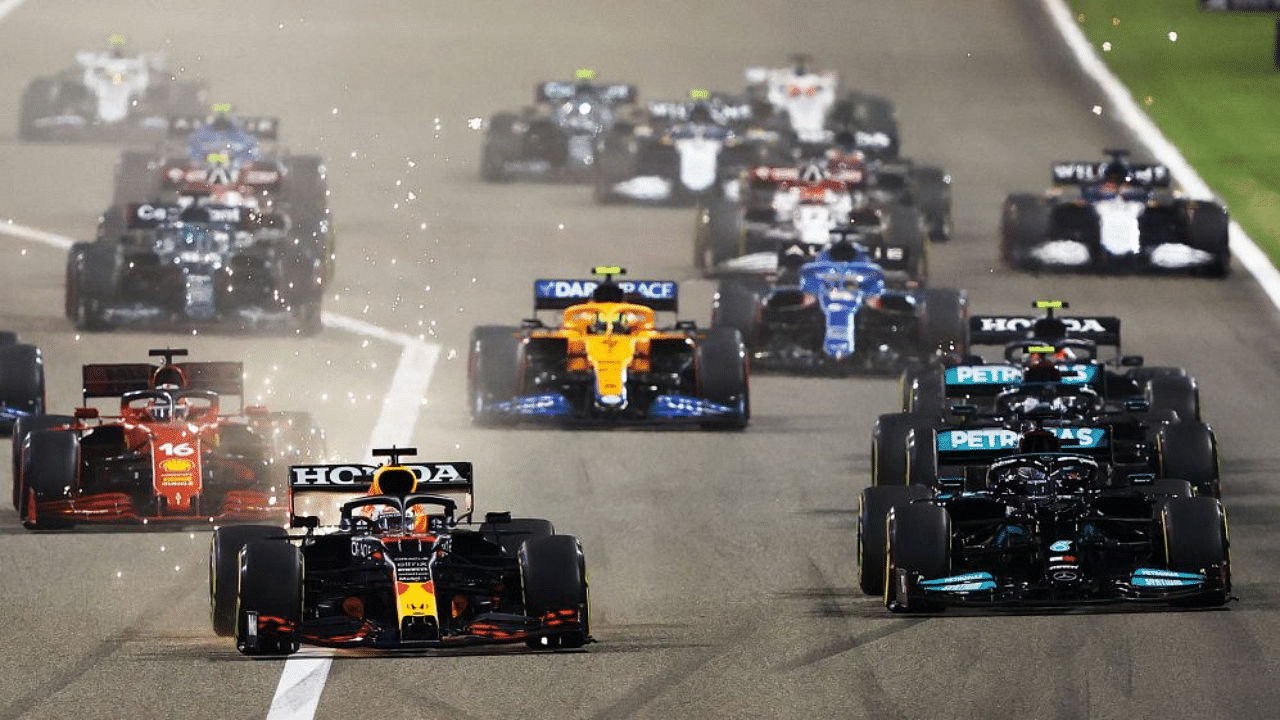F1 is a sport that is always evolving. Ahead of every season, the governing body of the sport comes up with a new set of rules and regulations regarding engines and other technical aspects that all participating teams and drivers have to follow. However, during some years, these regulation changes are more drastic and widespread.
One of the biggest changes to regulations in F1 came in 2014 with the introduction of hybrid engines. The onset of this ‘turbo-hybrid’ era marked a change in the sport and altered the course of F1 history. Since then, however, there has been no major change in F1 engines.
In fact, with the start of the 2022 season, all 10 F1 teams put a complete halt in the development of their respective power units. However, considering the fact engine development is so crucial to success in F1, why did these teams stop something so important?
Also read: Kyle Larson Blames “Fake” Lewis Hamilton NASCAR Moment for Ruining Potential F1 Dream
Why was F1 engine development stopped?
F1 engines are extremely complex, and there are huge teams back at the factories who work tirelessly throughout the year, to maximize the potential of these power units. If there are changes to be brought about, the teams need to know well in advance so they can prepare accordingly.
In 2020, F1 announced that there will be widespread changes to power unit regulations starting in 2025. Consequently, they wanted the teams wanted to stop developing their current engines because, in a few years’ time, they won’t be a part of the sport anymore.
Engine ‘Freeze’ ❄️
Saturday Sprint Races? 🏃♂️💨
Sky Sports News’ @craigslatersky has the latest news from today’s meeting of the F1 Commission 🗣#SkyF1 | #F1
— Sky Sports F1 (@SkySportsF1) February 11, 2021
However, the onset of the Covid 19 pandemic saw this ‘engine freeze’ get delayed by a year. Instead of starting the freeze in 2021, they halted development in 2022. This means that the power units that the teams have designed and worked on, are locked in until the 2025 F1 season.
FIA wanted the current four engine developers to focus on only the 2026 engines because wasting their limited resources on R&D of something that will soon be redundant did not make much sense.
What can teams change?
The widespread development of engines may have been halted, but there are small changes that will still be permitted. However, these alterations cannot affect the performance of the engine or car whatsoever.
According to Article 5.4, the teams can approach FIA to make modifications to certain aspects of the power unit that improve issues like safety and reliability. Changes can also be made around the installation of these power units, because the cars themselves will be heavily modified until 2026.
Honda has registered for the 2026 #F1 regulations with the FIA, fuelling speculations that it could make a return to the sport as an engine manufacturer.
All the details here: https://t.co/r9mOkHzjwl
— Motorsport.com (@Motorsport) December 12, 2022
On top of that, the teams are also allowed to change the fuel they use, but only for sponsorship reasons and not to enhance their car’s performance.








